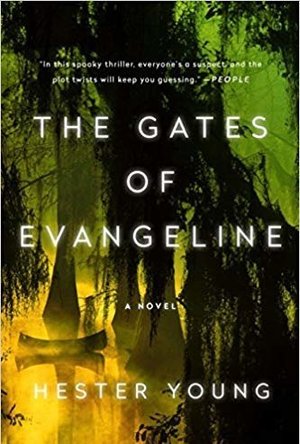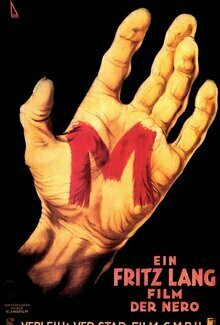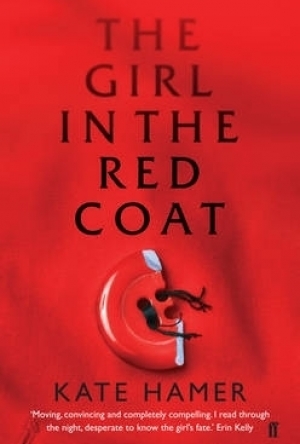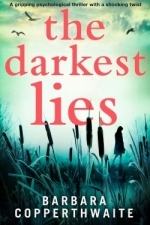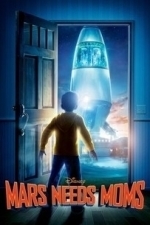Search
Kirk Bage (1775 KP) rated Abducted in Plain Sight (2017) in Movies
Apr 8, 2021
Now this one has to be seen to be believed! It is a short documentary film of about 90 minutes, not a series, but it plays like a longer episode of a series – except by the end there is no more to tell. In and out, thankfully! It is the story of Jan Broberg, a relatively successful Hollywood supporting actress, who wrote a book about her abduction by a close family friend when she was a child in the 70s. As the story unfolds, especially if you are a parent yourself, you will be screaming at the screen in total disbelief and indignation every ten minutes, and twice as loud at the end!
I can’t go into the details without ruining it, but suffice to say that the series of events is one of the strangest stories, fact or fiction, that I have ever heard! The audacity and total manipulation of the offender, in conjunction with the insane naivety of Jan and her parents is mind-blowing! How he got away with it in any way for longer than a day is unfathomable enough, but this was abuse that went on unpunished for years. Is it the bible belt attitude to blame? I am… still… scratching my head on this one! How did these events and crimes ever happen? Just, wow! Do yourself a favour if you want to be shocked and have a good rant at the TV, watch this and see for yourself.
I can’t go into the details without ruining it, but suffice to say that the series of events is one of the strangest stories, fact or fiction, that I have ever heard! The audacity and total manipulation of the offender, in conjunction with the insane naivety of Jan and her parents is mind-blowing! How he got away with it in any way for longer than a day is unfathomable enough, but this was abuse that went on unpunished for years. Is it the bible belt attitude to blame? I am… still… scratching my head on this one! How did these events and crimes ever happen? Just, wow! Do yourself a favour if you want to be shocked and have a good rant at the TV, watch this and see for yourself.
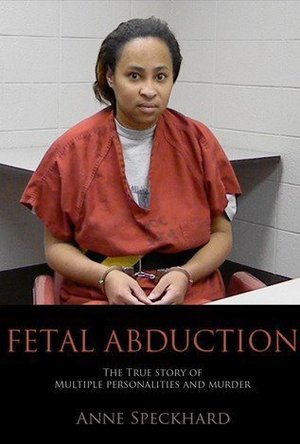
Fetal Abduction: The True Story of Multiple Personalities and Murder
Book
This is the story of Annette Morales Rodriguez, a hard-working single mother of three. It is also...

The Book of Cold Cases
Book
A true crime blogger gets more than she bargained for while interviewing the woman acquitted of two...
ghost story
Whatchareadin (174 KP) rated The Gates of Evangeline in Books
Apr 9, 2019
Charlotte Cates has started having dreams about young children now that her son has passed away. She is not sure what these dreams mean, but when they start to come to fruition, she sees that she may have a gift she may not really want. Sent to Louisiana to write a book about the abduction of young Gabriel Deveau, she believes she knows what has happened to him from one of her dreams. Will she be able to find out what happened to this boy? What other dreams will she have before she gets the answers she is looking for?
I started this book and at first I couldn't get into it. I put it down for a couple of weeks and then picked it back up. I'm so glad that I did. While some parts of this book were a little bit predictable, this was an overall good read. I was invested in the story and I was desperate to know what was going to happen to Charlotte, or Charlie as she likes to be called.
After the death of her own child, she was lost and unsure about how to continue her life. She wasn't really into her job and then came the opportunity arose for her to write about something, she thought she had first hand knowledge about. Leaving her home in Connecticut to live at Evangeline, the estate where Gabriel went missing, she uncovers a lot about the Deveau family that she never knew was possible.
At 75% I literally felt my heart begin to race. And it was difficult to put the book down from then on. Highly recommended.
I started this book and at first I couldn't get into it. I put it down for a couple of weeks and then picked it back up. I'm so glad that I did. While some parts of this book were a little bit predictable, this was an overall good read. I was invested in the story and I was desperate to know what was going to happen to Charlotte, or Charlie as she likes to be called.
After the death of her own child, she was lost and unsure about how to continue her life. She wasn't really into her job and then came the opportunity arose for her to write about something, she thought she had first hand knowledge about. Leaving her home in Connecticut to live at Evangeline, the estate where Gabriel went missing, she uncovers a lot about the Deveau family that she never knew was possible.
At 75% I literally felt my heart begin to race. And it was difficult to put the book down from then on. Highly recommended.
Kirk Bage (1775 KP) rated M (Movie) (1931) in Movies
Jan 28, 2021
The maestro of dark shadows, Fritz Lang already had 14 feature films under his belt by 1931, including the much loved and much borrowed from Metropolis in 1927. It is said that he was such a slave driver with cast and crew alike that he had very few friends and was detested as a man. His work spoke for itself, however, and was always miles ahead of anything happening at the same time in Hollywood. Take the dark, sinister and serious M as an example. It tackles the subject of child abduction and murder, homelessness, crime in general and the punishment of a mob – subjects American cinema would never have touched in 1931, let alone done with such an exquisite non- melodramatic feel.
Peter Lorre as the killer compelled by his own weakness and madness gives an unfeasably nuanced performance for the era also. He is mesmerically creepy and unforgettable. Images and motifs (such as the whistle that indicates the murderer is lurking) abound, creating a landscape of pure mood and disease. As a morality tale it touches on issues of vigilantism and true justice that still has some relevance today. It also works as an entertaining thriller, and there wasn’t a minute I felt bored or distracted. The only jarring element are the scenes where Lang cuts the sound entirely to create tension and focus – they feel like technical mistakes, not deliberate choices. Otherwise, I could not have been more impressed and pleasantly surprised by this Euro classic for all time. If I were making a list of the best films ever made that disregarded the limitations of the age, then M would definitely make the cut.
Peter Lorre as the killer compelled by his own weakness and madness gives an unfeasably nuanced performance for the era also. He is mesmerically creepy and unforgettable. Images and motifs (such as the whistle that indicates the murderer is lurking) abound, creating a landscape of pure mood and disease. As a morality tale it touches on issues of vigilantism and true justice that still has some relevance today. It also works as an entertaining thriller, and there wasn’t a minute I felt bored or distracted. The only jarring element are the scenes where Lang cuts the sound entirely to create tension and focus – they feel like technical mistakes, not deliberate choices. Otherwise, I could not have been more impressed and pleasantly surprised by this Euro classic for all time. If I were making a list of the best films ever made that disregarded the limitations of the age, then M would definitely make the cut.
Louise (64 KP) rated The Girl in the Red Coat in Books
Jul 2, 2018
This book is every parent/guardians worst nightmare! This book made me feel anxious and sick at how realistic this is. For my daughter to be the same age as Carmel is just terrifying to me. This story line will definitely bring out your emotions even if you are not a parent. The premise was what drew me towards reading this book, child abduction is something that we will see on the news occasionally and something that could happen to anyone.
Carmel Wakeford is 8 years old and intelligent for her age, recently Carmel has been “Away with the Fairies” and occasionally wanders off. Beth (Carmel’s mother) is on constant edge when they visit a children’s festival, so much so they Carmel becomes agitated by her mothers clingyness that she decides to remove herself from her mothers grasp just for a while. When Carmel returns to the spot her mother is no where to be seen, a grey haired man appears and introduces himself as Carmel’s grandfather. With never actually meeting her grandfather before and him knowing her parents, she believes him when he tells her that her mother has been in an accident and he is there to look after her. Beth is frantically searching for her daughter realising her worst fear is becoming a reality.
The book is told from two alternating point of views, Beth and Carmel’s. Though this is a crime book, it is not told from the investigation perspective as we are used to, it’s more of the mother/father/family/child’s suffering. Hamer has captured the emotions of the mother really well with feeling guilty and the grieving process and I could feel her despair and knew if I was in the same position I would be feeling exactly the same way. I enjoyed reading from Carmel’s perspective, it’s interesting when the author writes as a child it needs to come across realistically which Hamer managed to pull off.
I found this story to be quite slow even with the alternating POV’s and some parts I was bored but I continued reading as I needed to know what happened to Carmel. The ending all seemed to be a bit rushed and left things unexplained. The writing was really good and packed full of emotion.
This is a great debut novel from Kate Hamer and would be interested in reading her future work.
Overall I rated this 3.5 out of stars
Carmel Wakeford is 8 years old and intelligent for her age, recently Carmel has been “Away with the Fairies” and occasionally wanders off. Beth (Carmel’s mother) is on constant edge when they visit a children’s festival, so much so they Carmel becomes agitated by her mothers clingyness that she decides to remove herself from her mothers grasp just for a while. When Carmel returns to the spot her mother is no where to be seen, a grey haired man appears and introduces himself as Carmel’s grandfather. With never actually meeting her grandfather before and him knowing her parents, she believes him when he tells her that her mother has been in an accident and he is there to look after her. Beth is frantically searching for her daughter realising her worst fear is becoming a reality.
The book is told from two alternating point of views, Beth and Carmel’s. Though this is a crime book, it is not told from the investigation perspective as we are used to, it’s more of the mother/father/family/child’s suffering. Hamer has captured the emotions of the mother really well with feeling guilty and the grieving process and I could feel her despair and knew if I was in the same position I would be feeling exactly the same way. I enjoyed reading from Carmel’s perspective, it’s interesting when the author writes as a child it needs to come across realistically which Hamer managed to pull off.
I found this story to be quite slow even with the alternating POV’s and some parts I was bored but I continued reading as I needed to know what happened to Carmel. The ending all seemed to be a bit rushed and left things unexplained. The writing was really good and packed full of emotion.
This is a great debut novel from Kate Hamer and would be interested in reading her future work.
Overall I rated this 3.5 out of stars

Whole (Breaking Free #5)
Book
Two broken hearts…one perfect fit. Alpha Morris Danvers likes his quiet life as a paralegal...
M_M Mpreg Omegaverse Romance Dark
Jamie (131 KP) rated The Darkest Lies in Books
Jul 26, 2017
Believable plot regarding child abduction (1 more)
The mystery is compelling
Frustrating protagonist, (2 more)
Extremely predictable
Good case for why civilians shouldn’t go rogue and get in the way of police work
A frustrating abduction mystery
You know that age in every teenager’s life where they start to become a little bit rebellious? Telling little white lies, sneaking out, hanging out with crowds they know the family wouldn’t approve of? It can be a scary time for parents, who knows who’s out there? The Darkest Lies is every parent’s worst nightmare and follows a mother who finds her world shattered when her daughter goes missing.
I’m going to come right out and say that this book was frustrating for me. The synopsis really caught my eye and the idea for the plot is intriguing. Unfortunately, issues with the protagonist as well as a shaky and highly predictable plot made for a mediocre experience.
The narration in this book was a little bit weird and I had a hard time getting used to it. It is primarily told using first person point of view though switches regularly to second person as Melanie speaks directly to Beth in her inner monologue. It was just uncomfortable to read.
What’s so bad about first person point of view? See the issue for me with first person narration is that it’s easy to end up alienating readers if it’s difficult to relate to the narrator, and boy did I dislike Melanie. To be blunt, she was really annoying. She was self-centered, mean-spirited, often blinded by her own hubris, and near the end has a bit of a messiah complex going which I found completely ridiculous. She was constantly complaining about the police’s incompetence, throwing herself in the way of the investigation despite being asked multiple times to back off before she could destroy their leads. “I couldn’t go home. I was too furious, too desperate to prove I was right and the police were wrong.”
I get it, she’s consumed with guilt and grief over what happened to her daughter, over not being able to protect her. Desperate people tend to lash out and do stupid things, but I just couldn’t believe anyone would be so foolish. Melanie’s antics do lead up to something important in the plot, but honestly she didn’t need any help making a fool of herself. Before all the crazy came out she was constantly breaking down every female character she encountered, often focusing in on their looks and finding ways to insult them. Neighbors, police officers working on the case, teenagers, it didn’t matter. There are numerous examples of Melanie exhibiting this jealous personality throughout the course of the book.
She spends more time going on drunken rampages pointing fingers at everyone in town, harassing the police, treating her husband like garbage while emotionally cheating with a friend, and avoiding actually seeing and being there for her daughter. While her awful actions over the course of the book is an important aspect of the plot, I just couldn’t justify it because she never learns and remains stubborn even after being told off multiple times. Add on top how stereotypically reckless she acts at the end instead of seeking help from the police because of course she doesn’t need them and I just couldn’t dig the story.
I liked the central idea around the dangers of teens sneaking out and trusting strangers, but the story meandered so much it kind of gets lost in Melanie’s mental collapse and crazed search for the culprit. The plot attempts to use some misdirection to keep the reader guessing but the construction was just sloppy, and the actual culprit isn’t even the character that Melanie cares about the most. Every “bad” character is so blatantly obvious that the advertised twist is really easy to see. I kept on reading because I wanted to know the how and the why. I think there was potential here, and if the author wanted to stick to the narrative that Mel is actually really nice and is just being manipulated then why does she remain every bit as petty and controlling? She is still unable to see past her own emotions and unable to learn from her mistakes. I wished that this could’ve ended with more character growth for the main character.
I’m going to come right out and say that this book was frustrating for me. The synopsis really caught my eye and the idea for the plot is intriguing. Unfortunately, issues with the protagonist as well as a shaky and highly predictable plot made for a mediocre experience.
The narration in this book was a little bit weird and I had a hard time getting used to it. It is primarily told using first person point of view though switches regularly to second person as Melanie speaks directly to Beth in her inner monologue. It was just uncomfortable to read.
What’s so bad about first person point of view? See the issue for me with first person narration is that it’s easy to end up alienating readers if it’s difficult to relate to the narrator, and boy did I dislike Melanie. To be blunt, she was really annoying. She was self-centered, mean-spirited, often blinded by her own hubris, and near the end has a bit of a messiah complex going which I found completely ridiculous. She was constantly complaining about the police’s incompetence, throwing herself in the way of the investigation despite being asked multiple times to back off before she could destroy their leads. “I couldn’t go home. I was too furious, too desperate to prove I was right and the police were wrong.”
I get it, she’s consumed with guilt and grief over what happened to her daughter, over not being able to protect her. Desperate people tend to lash out and do stupid things, but I just couldn’t believe anyone would be so foolish. Melanie’s antics do lead up to something important in the plot, but honestly she didn’t need any help making a fool of herself. Before all the crazy came out she was constantly breaking down every female character she encountered, often focusing in on their looks and finding ways to insult them. Neighbors, police officers working on the case, teenagers, it didn’t matter. There are numerous examples of Melanie exhibiting this jealous personality throughout the course of the book.
She spends more time going on drunken rampages pointing fingers at everyone in town, harassing the police, treating her husband like garbage while emotionally cheating with a friend, and avoiding actually seeing and being there for her daughter. While her awful actions over the course of the book is an important aspect of the plot, I just couldn’t justify it because she never learns and remains stubborn even after being told off multiple times. Add on top how stereotypically reckless she acts at the end instead of seeking help from the police because of course she doesn’t need them and I just couldn’t dig the story.
I liked the central idea around the dangers of teens sneaking out and trusting strangers, but the story meandered so much it kind of gets lost in Melanie’s mental collapse and crazed search for the culprit. The plot attempts to use some misdirection to keep the reader guessing but the construction was just sloppy, and the actual culprit isn’t even the character that Melanie cares about the most. Every “bad” character is so blatantly obvious that the advertised twist is really easy to see. I kept on reading because I wanted to know the how and the why. I think there was potential here, and if the author wanted to stick to the narrative that Mel is actually really nice and is just being manipulated then why does she remain every bit as petty and controlling? She is still unable to see past her own emotions and unable to learn from her mistakes. I wished that this could’ve ended with more character growth for the main character.
Bob Mann (459 KP) rated Let Him Go (2020) in Movies
Dec 23, 2020
Feud for Thought
After a family tragedy for the Blackledge family, grandparents George (Kevin Costner) and Margaret (Diane Lane) are left to bring up baby Jimmy (Bram and Otto Hornung) with mother/daughter-in-law Lorna (Kayli Carter). But a few years later, Lorna marries bad-un Donnie Weboy (Will Brittain) and disappears back to Donnie's hillbilly extended family in the wilds of North Dakota, led by the fearsome Blanche Weboy (Lesley Manville). Fearing for the child's wellbeing, Margaret drags retired Sheriff George on a dangerous journey to rescue the child.
There are strong similarities in this story with a sub-plot of the excellent "Ozark", where the psychopathic Darlene Snell (Lisa Emery) is intent on having a child to grow up with on her remote ranch. The sense of tension there is recreated here, exacerbated by the movie's extremely slow (read "glacial") pace in its early stages. It's the same sort of rising dread that I felt with "Nocturnal Animals". This reaches its peak at a tense standoff over lamb chops at the Weboy ranch, but we are probably half-way into the film by then.
The slow pace however is broken by a couple of extremely violent scenes that earn the movie its UK-15 certificate. One (no spoilers here!) harks back to another Kevin Costner blockbuster where he was a bit luckier! And the finale turns a slightly sleepy tale of "two old folks" into an 'all guns blazing' action western that's highly unexpected. Although you could argue that this is tonally extremely uneven, it works and makes the movie a lot more memorable than it otherwise would be.
The standout leading performance here is the one from Diane Lane as the mentally tortured Granny pursuing her convictions across the country. Here writer/director Thomas Bezucha gives the character full rein. It's a memorable 'strong female' part, that would have been dominated by the male lead in the writing of films a few years back. Lane delivers a dramatic and rock-solid performance that has Oscar nomination written all over it.
I'm also a big fan of Kevin Costner, not just because he's a solid and reliable actor over many years. I always remember him gamely appearing as "The Postman"/'propeller-guy' in Billy Crystal's hilarious montage opening for the 70th Academy Awards. Anyhow, here he has his meatiest dramatic role in many years, and delivers fully on it. Top job, although I suspect this may not be his year for his elusive Best Actor award.
Finally, rounding out the Oscar hopefuls is the brilliant Lesley Manville as Blanche Weboy. It's a dream of a role for the Brighton-born star, nominated of course for the Best Supporting Actress two years ago for "Phantom Thread". And she is genuinely chilling here, firing on all cylinders like some sort of deranged Bette Davis on speed. She's used sparingly in the movie, but that makes her scenes all the more memorable. Another nomination perhaps? I'd predict so, yes.
I found this to be an uncomfortable watch, since I found myself in a moral quandary with the storyline. It's clear that Margaret is genuinely concerned for the safety of Jimmy (and less so, Lorna). Yet, what she is ultimately prepared to do is consider child abduction, when the law if probably on the side of the other party. Sure, the lifestyle and attitudes of the Weboys are alien to this more traditional "Granny". But although Blanche rules with a Victorian-level of grit, isn't she - at least before any of her more vicious tendencies emerge - entitled to do that? The film firmly roots itself behind the Blackledge's as "the good guys", but the script cleverly has you questioning that at various points,
Two technical categories in "Let Him Go" are also worthy of note. The cinematography is by Guy Godfree, and the sweeping vistas of Montana and North Dakota (actually Alberta in Canada!) are gloriously delivered. And the music by Michael Giacchino - one of my favourite composers - is cello-heavy and fitting for the sombre storyline. I always assess the quality of a score by whether I annoy the cinema cleaners by sitting until the last of the end credits have rolled, and this is one I did that to.
As the last movie I see before Christmas, "Let Him Go" is not exactly a feelgood festive offering. It's a well-crafted and thoughtful story, but not one to make you feel good inside, for the reasons outlined above. If you are a movie-lover though, then it's an interesting watch, if only for the fine acting performances on offer.
(For the full graphical review, please check out the "Bob the Movie Man" review on the web here - https://bob-the-movie-man.com/2020/12/23/let-him-go-is-not-a-joyous-affair-but-delivers-oscar-worthy-performances/. Thanks.)
There are strong similarities in this story with a sub-plot of the excellent "Ozark", where the psychopathic Darlene Snell (Lisa Emery) is intent on having a child to grow up with on her remote ranch. The sense of tension there is recreated here, exacerbated by the movie's extremely slow (read "glacial") pace in its early stages. It's the same sort of rising dread that I felt with "Nocturnal Animals". This reaches its peak at a tense standoff over lamb chops at the Weboy ranch, but we are probably half-way into the film by then.
The slow pace however is broken by a couple of extremely violent scenes that earn the movie its UK-15 certificate. One (no spoilers here!) harks back to another Kevin Costner blockbuster where he was a bit luckier! And the finale turns a slightly sleepy tale of "two old folks" into an 'all guns blazing' action western that's highly unexpected. Although you could argue that this is tonally extremely uneven, it works and makes the movie a lot more memorable than it otherwise would be.
The standout leading performance here is the one from Diane Lane as the mentally tortured Granny pursuing her convictions across the country. Here writer/director Thomas Bezucha gives the character full rein. It's a memorable 'strong female' part, that would have been dominated by the male lead in the writing of films a few years back. Lane delivers a dramatic and rock-solid performance that has Oscar nomination written all over it.
I'm also a big fan of Kevin Costner, not just because he's a solid and reliable actor over many years. I always remember him gamely appearing as "The Postman"/'propeller-guy' in Billy Crystal's hilarious montage opening for the 70th Academy Awards. Anyhow, here he has his meatiest dramatic role in many years, and delivers fully on it. Top job, although I suspect this may not be his year for his elusive Best Actor award.
Finally, rounding out the Oscar hopefuls is the brilliant Lesley Manville as Blanche Weboy. It's a dream of a role for the Brighton-born star, nominated of course for the Best Supporting Actress two years ago for "Phantom Thread". And she is genuinely chilling here, firing on all cylinders like some sort of deranged Bette Davis on speed. She's used sparingly in the movie, but that makes her scenes all the more memorable. Another nomination perhaps? I'd predict so, yes.
I found this to be an uncomfortable watch, since I found myself in a moral quandary with the storyline. It's clear that Margaret is genuinely concerned for the safety of Jimmy (and less so, Lorna). Yet, what she is ultimately prepared to do is consider child abduction, when the law if probably on the side of the other party. Sure, the lifestyle and attitudes of the Weboys are alien to this more traditional "Granny". But although Blanche rules with a Victorian-level of grit, isn't she - at least before any of her more vicious tendencies emerge - entitled to do that? The film firmly roots itself behind the Blackledge's as "the good guys", but the script cleverly has you questioning that at various points,
Two technical categories in "Let Him Go" are also worthy of note. The cinematography is by Guy Godfree, and the sweeping vistas of Montana and North Dakota (actually Alberta in Canada!) are gloriously delivered. And the music by Michael Giacchino - one of my favourite composers - is cello-heavy and fitting for the sombre storyline. I always assess the quality of a score by whether I annoy the cinema cleaners by sitting until the last of the end credits have rolled, and this is one I did that to.
As the last movie I see before Christmas, "Let Him Go" is not exactly a feelgood festive offering. It's a well-crafted and thoughtful story, but not one to make you feel good inside, for the reasons outlined above. If you are a movie-lover though, then it's an interesting watch, if only for the fine acting performances on offer.
(For the full graphical review, please check out the "Bob the Movie Man" review on the web here - https://bob-the-movie-man.com/2020/12/23/let-him-go-is-not-a-joyous-affair-but-delivers-oscar-worthy-performances/. Thanks.)
Gareth von Kallenbach (980 KP) rated Mars Needs Moms (2011) in Movies
Aug 7, 2019
Milo is your typical 9-year-old boy who doesn’t like doing chores, eating his vegetables or getting disciplined by his mother. But because his mother makes him do his chores and eat his vegetables and scolds him when he doesn’t, she’s made herself the prime target for Martians who need her great mothering skills. Apparently, Martians are “hatched” and raised by “nanny-bots” that are programmed with an Earthling mother’s caregiving and disciplinary abilities. Of course, not any Earthling mother will do. Bypassed are those who spoil their child or fail to care for their child’s safety and wellbeing. So when Milo is spied dutifully, albeit grudgingly, doing as he’s told by his mother, she becomes Mars’ candidate for abduction, because, as the movie title states, Mars needs moms.
On the night Milo’s mom is abducted, Milo (enacted by Seth Green, voiced by Seth Dusky) wakes up in time to witness her being loaded onto a spaceship and he quickly becomes a stowaway. On the red planet, he’s rescued by Gribbler, a chubby, fast-talking, tech-savvy human (voiced by Dan Fogler) who helps him devise a plan to save Milo’s mom, a recognizable Joan Cusack, in voice and, somewhat creepily, in CGI’d face. The two are up against an army of female Martians lead by The Supervisor (voiced by Mindy Sterling) a mean, old Martian. Think Frau Farbissina as a mean E.T. Luckily, Milo and Gribbler find an ally in a rebel Martian named Ki (voiced by Elisabeth Harnois). Milo has less than 6 hours to get to his mom before she’s programmed into the nanny-bots and destroyed by the process. Soon, it’s a race against time for Milo, Gribbler and Ki as they run around endless corridors, hurtle through chutes, tumble down trash mountains, splash into other-worldly caves and fall off cliffs.
Based on a children’s novel by cartoonist Berkeley Breathed, the film is produced by Robert Zemeckis and directed by Simon Wells in performance-capture 3D, a technique pioneered by Zemeckis in Polar Express and used again in A Christmas Carol. In performance-capture filming, actors are covered in sensors that capture their actions and expressions to animate their digital characters. During the end credits, a sampling of outtakes show the actors in their sensor suits physically acting out various scenes. I have to admit, the most entertaining part of the movie for me was watching Seth Green and Dan Fogler literally throw themselves into their characters.
Even with a run time of 88 minutes, kids around Milo’s age and younger may remain enthralled to the end simply from the countdown suspense. Older kids, maybe not. Yes, the high-point of the tale is Milo’s realization of how truly important his mom is to him. But even with all the running and tumbling around, the story takes a long, meandering walk to get to that point. While the technological achievements of 3D animation get more and more impressive, if the story doesn’t captivate or inspire, it’s practically a wasted effort, especially when watching in 2D would not take much away from the effects.
On the night Milo’s mom is abducted, Milo (enacted by Seth Green, voiced by Seth Dusky) wakes up in time to witness her being loaded onto a spaceship and he quickly becomes a stowaway. On the red planet, he’s rescued by Gribbler, a chubby, fast-talking, tech-savvy human (voiced by Dan Fogler) who helps him devise a plan to save Milo’s mom, a recognizable Joan Cusack, in voice and, somewhat creepily, in CGI’d face. The two are up against an army of female Martians lead by The Supervisor (voiced by Mindy Sterling) a mean, old Martian. Think Frau Farbissina as a mean E.T. Luckily, Milo and Gribbler find an ally in a rebel Martian named Ki (voiced by Elisabeth Harnois). Milo has less than 6 hours to get to his mom before she’s programmed into the nanny-bots and destroyed by the process. Soon, it’s a race against time for Milo, Gribbler and Ki as they run around endless corridors, hurtle through chutes, tumble down trash mountains, splash into other-worldly caves and fall off cliffs.
Based on a children’s novel by cartoonist Berkeley Breathed, the film is produced by Robert Zemeckis and directed by Simon Wells in performance-capture 3D, a technique pioneered by Zemeckis in Polar Express and used again in A Christmas Carol. In performance-capture filming, actors are covered in sensors that capture their actions and expressions to animate their digital characters. During the end credits, a sampling of outtakes show the actors in their sensor suits physically acting out various scenes. I have to admit, the most entertaining part of the movie for me was watching Seth Green and Dan Fogler literally throw themselves into their characters.
Even with a run time of 88 minutes, kids around Milo’s age and younger may remain enthralled to the end simply from the countdown suspense. Older kids, maybe not. Yes, the high-point of the tale is Milo’s realization of how truly important his mom is to him. But even with all the running and tumbling around, the story takes a long, meandering walk to get to that point. While the technological achievements of 3D animation get more and more impressive, if the story doesn’t captivate or inspire, it’s practically a wasted effort, especially when watching in 2D would not take much away from the effects.

